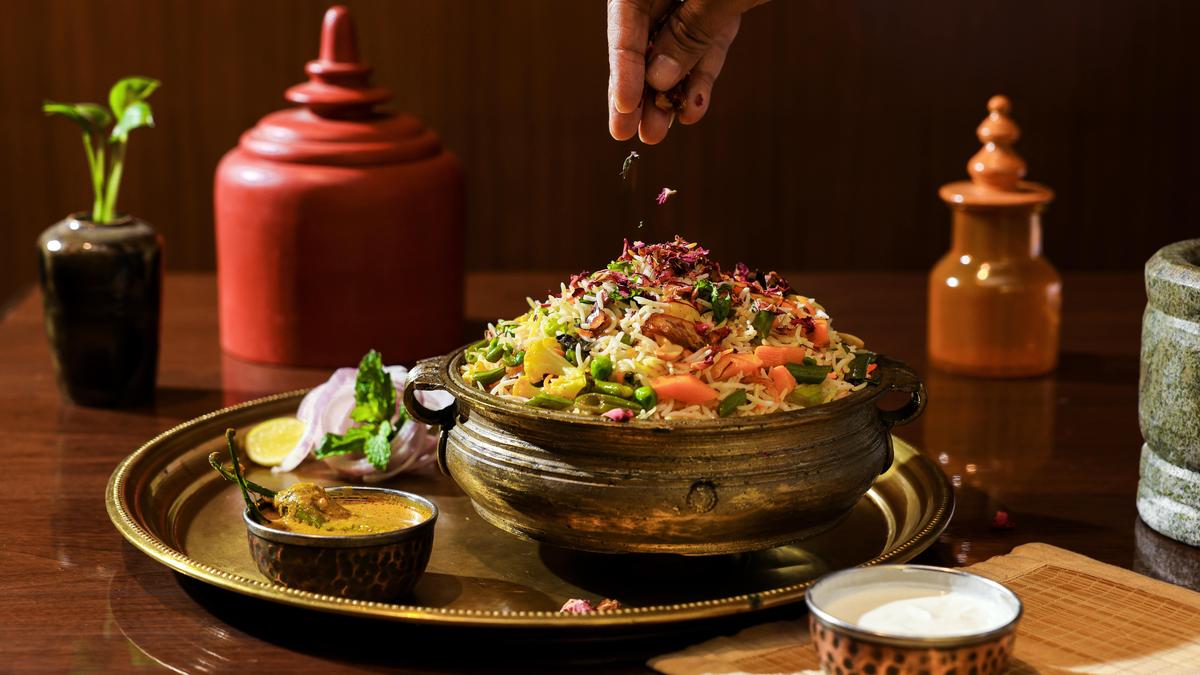
Diversity, history and heritage shape Murshidabad’s unique royal cuisine, chef Rehman Mujeebur says
The Hindu
Discover the hidden gem of Murshidabad cuisine, a delicate blend of Jain, Mughal, and Bengali flavors expertly curated by Chef Rehman Mujeebur.
When one thinks of royal cuisines of India, we always picture Awadh or the North west. There is a hidden gem in the cuisine of Murshidabad, one that is more delicate and complex. Chef Rehman Mujeebur is an expert in royal cuisines, and his latest project, the cuisine of Murshidabad, was showcased recently in Bengaluru. He was hosted by Shangri-La Bengaluru for a food festival at the restaurant Ssaffron. Over lunch, I learn more about history and the diverse communities that influence these dishes.
Murshidabad, located on the banks of the Bhagirathi River in West Bengal, is a historic city. In 1702, the Nawab of Bengal, Murshid Quli Khan founded this city and named it after himself. Jains from Rajasthan were brought in to take care of finances, foreign traders from Europe came for business, and the Mughal style of life thrived there. And hence even today, the cuisine of Murshidabad is a mix of Jain flavours, Mughal sensibilities and local Bengali ingredients.
“I have researched on the cuisines of Hyderabad, Rampur, Northwest, Kashmir and many others. Last year I started work on Murshidabad,” says the chef who holds a doctorate in culinary arts, and is descended from khansamas of Lucknow. “Nobody has done work in this cuisine. I went there, I read through archives and documents, met elders from the community and the khansamas there. I called them to my kitchen and learnt from them.” Notes of mustard, mustard oil, rose water and potatoes set this cuisine apart.
Sandalwood dust and seafood
Being located near the river, Murshidabad has a lot of seafood dishes. The pop up has a special seafood menu, with dishes such as jheenga jangli pudina shorba, a prawn soup finished with wild mint dust. The salmon peelimirch tikka is made with mustard flavoured Norwegian salmon, and yellow chillies; this dish is bright and flavourful. The kekra kebab is made with crab meat and sandalwood dust. “They use sandalwood dust in their cooking to hide the odor of the seafood,” Rehman explains. Lagan ka lobster, a highlight of the meal, was a slow cooked sand lobster cooked with pomegranate paste and spiced with cardamom powder and Kashmiri chilli. The pomegranate gives it a tart flavour.
The Sheherwali Jains
The menu has a lot of vegetarian dishes because of the prominent Jain community. “The Sheherwali Jains in Murshidabad still host a heritage festival every year”.

The Madras High Court has held that loan applicants cannot resort to arbitration proceedings regarding the non-updation of their credit history, by companies such as TransUnion CIBIL Limited, without first exhausting an alternative remedy provided under the Credit Information Companies (Regulation) Act of 2005.





















 Run 3 Space | Play Space Running Game
Run 3 Space | Play Space Running Game Traffic Jam 3D | Online Racing Game
Traffic Jam 3D | Online Racing Game Duck Hunt | Play Old Classic Game
Duck Hunt | Play Old Classic Game










